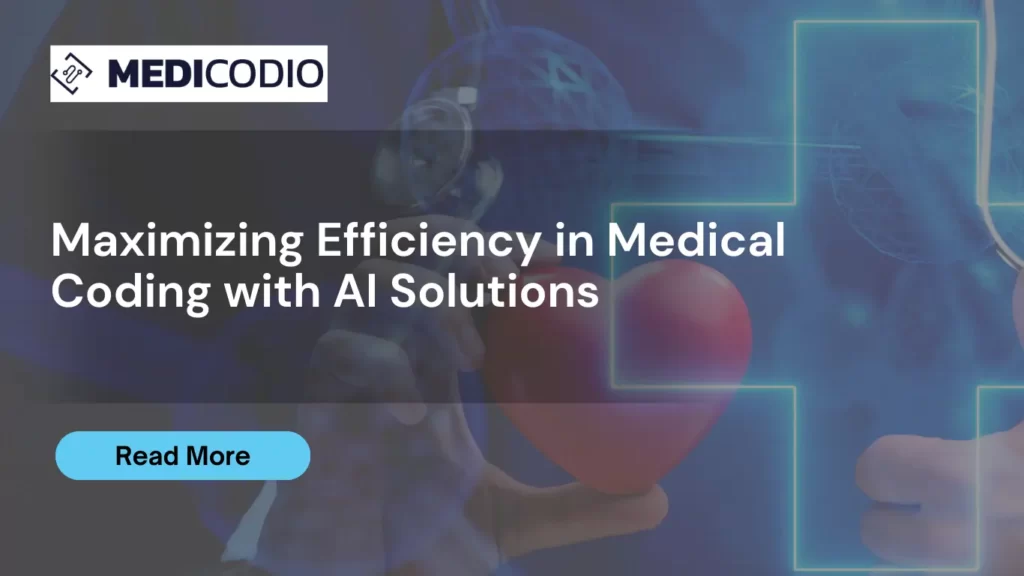The dot com boom of the 19th century solved many problems in the 1990s. We are in a similar era in 2023, where not dot com but AI seems to be a possible solution to all our worries. The medical coding industry is no different.
AI is solving the medical coding industry’s biggest problem – efficiency. Lack of standardization, the complexity of codes, and a time-intensive manual process contribute to reduced efficiency in medical coding.
The Advantages of AI-powered Medical Coding
Artificial intelligence (AI) solutions can maximize efficiency in medical coding by automating many manual tasks, which leads to
- Reduction in coding errors: ML algorithms are trained to identify patterns in medical records and to understand the relationships between medical terms, codes, and medical concepts. This results in fewer errors, as the technology is less prone to human error.
- Better Data Management and Analysis: AI enables healthcare facilities to process large amounts of data, analyze medical records and identify patterns and relationships between medical terms, codes, and medical concepts. This allows for a deeper understanding of patient health trends, helping healthcare providers to make informed decisions about patient care and treatment.
The outcome of reduced errors and better data management is efficiency.

How AI-powered Medical Coding Works
AI in medical coding uses NLP to extract patient info, and translate it into codes. Medical data is used to train ML algorithms for accurate categorization and coding.
A typical medical coding cycle using AI tech has the following steps:
- Data Collection
- Data Analysis
- Code Assignment
- Data Verification
- Data Storage
Challenges and Considerations for Implementing AI-powered Medical Coding
Though AI tech in medical coding is a promising solution, initial adoption might feel difficult. Here’s why:
- Integration with Existing Systems and Processes: A big challenge for the healthcare industry is the seamless integration of AI into healthcare systems. The solution: Assessing the compatibility of current systems with upcoming AI solutions.
- Ensuring Data Privacy and Security: Data privacy and security are critical while dealing with sensitive patient info. The solution: instituting robust security measures for AI medical coding.
Addressing Ethical Concerns Around AI in Healthcare: AI-powered medical coding poses ethical concerns such as bias and job loss. The solution: engage in discussions and develop guidelines for ethical deployment in healthcare. This includes monitoring and evaluation, transparency, accountability, and training for responsible use.
In a nutshell, AI tech uses ML algorithms to understand the patterns and relationships between medical terms, codes, and medical concepts. This allows an expedited coding process, reducing the time and effort required from medical coders.
References
“AI in Healthcare: Opportunities and Challenges.” World Health Organization, 6 July 2020, www.who.int/campaigns/world-health-day/world-health-day-2020.





